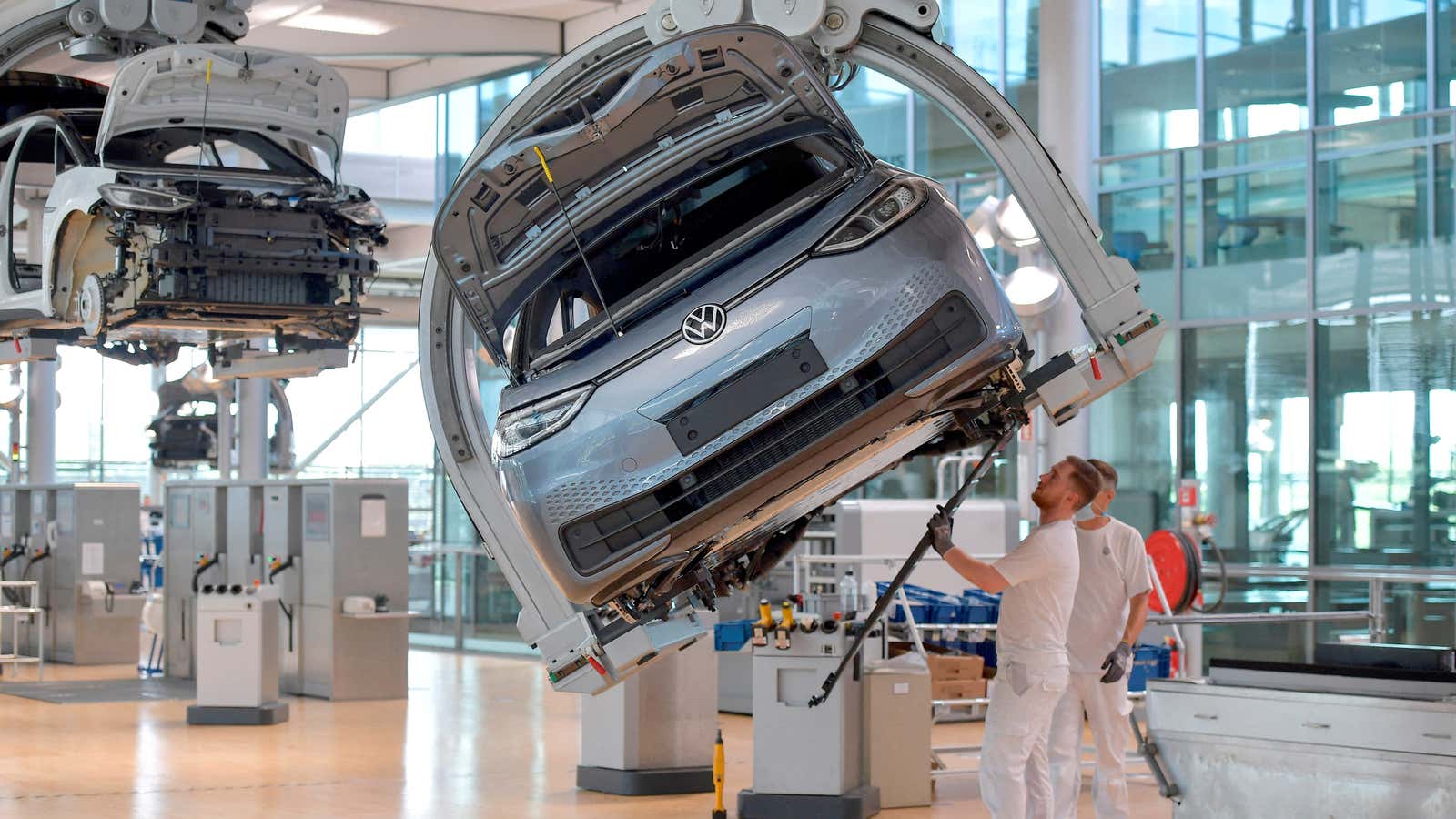Volkswagen will end its production of dozens of models of combustion engine cars by the end of the decade, CFO Arno Antlitz told the Financial Times. The company didn’t specify which models will be cut, but Antlitz said it plans to discontinue 60% of its gas- and diesel-powered models in Europe by 2030.
The announcement highlights how supply chain challenges have accelerated automakers’ transition from gas to electric vehicles. While shortages of chips have paused production for some combustion engine car models and sent others into early retirement, Volkswagen and its peers are still racing ahead with ambitious plans to ramp up production of electric vehicles (EVs).
As Volkswagen cuts manufacturing overall, it still plans to invest $59 billion by 2026 to launch new lines of electric cars and compete against EV giants like Tesla. To achieve these contradictory goals, Volkswagen will cannibalize factories that used to make gas-powered cars and transform them into EV plants. “We are not adding capacity: we rework factory by factory,” Antlitz told the Financial Times. The company has already converted production lines at factories in Zwickau and Emden, Germany from combustion engine cars to EVs.
The chip shortage forces automakers to scale back production
The shortage of computer chips that control everything from driver assistance systems to door locks has driven Volkswagen to scale back its manufacturing and focus on producing a smaller set of premium car models that sell at high margins, like its Audi and Porsche brands. In March, the company said it would stop taking orders in Germany for several hybrid models, including the Golf, Tiguan, and Passat, because of “limitations in supply of semiconductors.”
Antlitz told the Financial Times that Volkswagen won’t go back to making many of its combustion engine cars, even after supply chain bottlenecks get resolved. “We are [more focused] on quality and on margins, rather than on volume and market share,” he said. That represents a big strategy shift for a company that was once determined to scale up production and become the world’s biggest car seller by volume.
Volkswagen isn’t alone. Ongoing chip shortages have forced Ford to halt production of some combustion engine SUVs and trucks, even as it speeds ahead on plans to sell electric pickup trucks. GM halted some pickup truck production, citing the chip shortage, shortly before announcing a new partnership with Honda to produce affordable EVs that will sell for under $30,000 by 2027.
Analysts expect EV sales to grow quickly. Automakers eager to stake their place in the growing market don’t mind sacrificing sales of combustion engine cars to get there.
